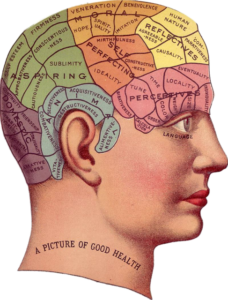The psychological profile of the patients
This article was written by Ph. D. B. Snitslaar, neurologist, in the 80’s associated with the Phobias project of the Department of Personality Studies of the sub faculty of Psychology at the University of Amsterdam. Later he was employed by the Common Medical Service, Research and Development department, Research section. Although many medical terms are used in this article, it can still provide good background information. Even if you are not a medical doctor and are interested in more accurate information about chronic hyperventilation syndrome, the medical articles on this site may be of interest to you.

The psychological profile of the patients with chronic hyperventilation often involves insecure people, who try to appear firm and independent. They are afraid of making a weak, childish impression. And they put high demands on themselves. Usually they show an excessive sense of duty. Under conditions of psycho-social stress, they continue to “go on for too long” as if “nothing is wrong”, until they drop figuratively (sometimes literally).
The patient usually does not understand the symptoms
There is a constant tendency to control or repress their feelings / expressions of frustration. It is tragic, that these people are so easily taken for simulators or hysterics. The patient usually does not understand his symptoms. And is not able to make them clear to the physician consulted. In part, this is also caused by the doctor’s unfamiliarity with the hyperventilation phenomenon.
Partial amnesia affects the patient’s anamnesis
Repeatedly, we got the impression that partial amnesia – due to reduced effective central nervous system functioning – detracts the patient from producing his anamnesis. In any case, doctors often refer to the symptoms concerned and their presentation as vague.
Doctors often tell patients ‘you have nothing’
There is a discrepancy between the degree of alertness of the patient on the one hand. And the fact that the doctor ‘finds nothing’ on the other. Moreover, the patient makes a nervous impression. Usually the doctor is also not aware of the psycho-social stress that most patients with chronic hyperventilation have been exposed to. Doctors often tell patients ‘you have nothing’. A well-meaning doctor will try to reassure him or her. With or without the addition that they are ‘the nerves’, or ‘just stress’.
The patient often feels increasingly guilty
The patient then often feels increasingly guilty. He gets the impression to have abused the precious time of his doctor. Sometimes the patients feel (unfortunately not always unfounded) that they are accused of laziness. The worry about the symptoms remains and often gets bigger.
An often long, senseless and extremely frustrating agony
Usually this leads to escalation in the appellant behavior (often referred to as inadequate or hysterically by the physician). This increases the bias towards the patient. And it offers a guarantee for the often long, meaningless, often frustrating agony for the parties concerned.

 research findings
research findings causes of hyperventilation
causes of hyperventilation